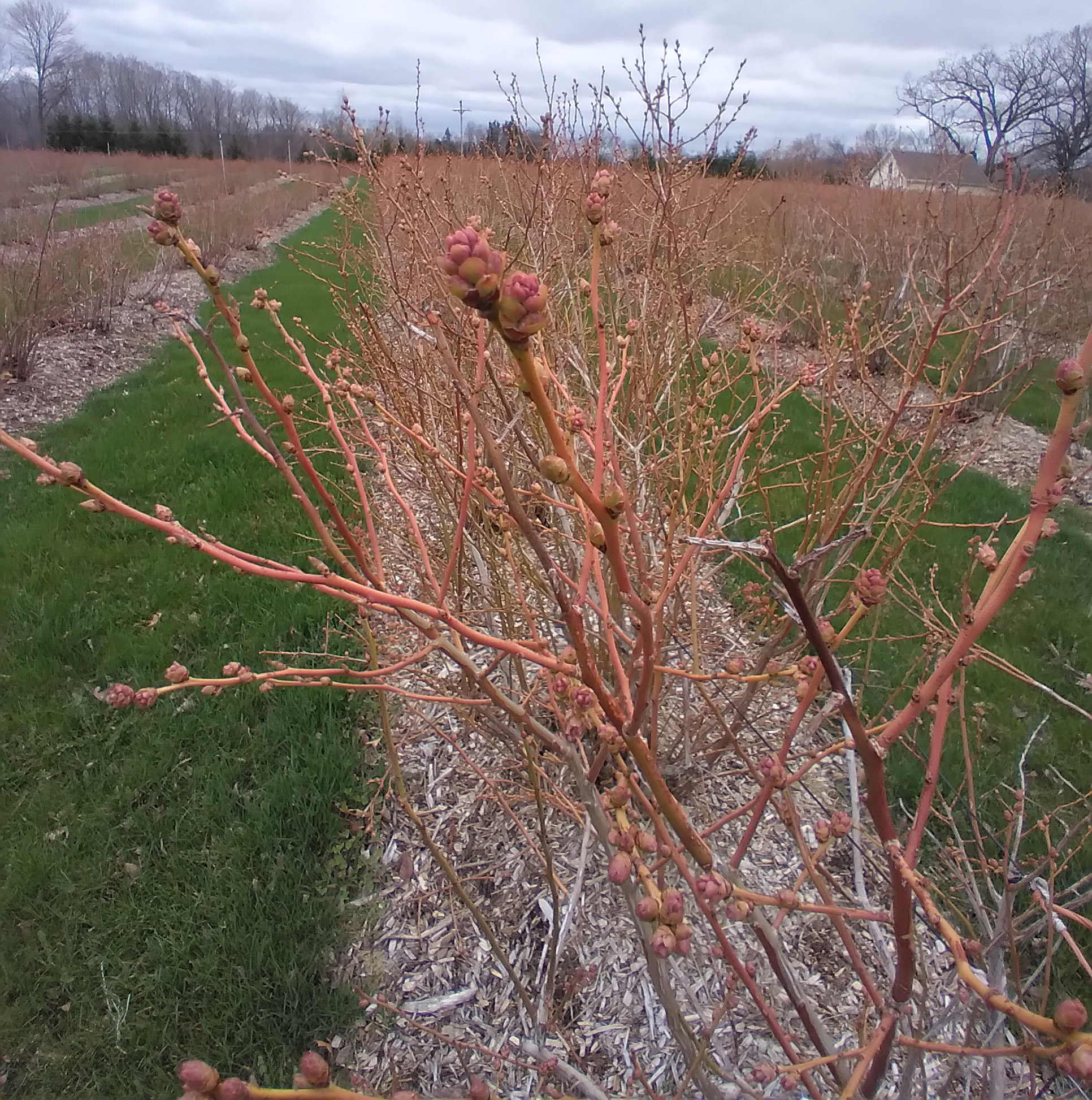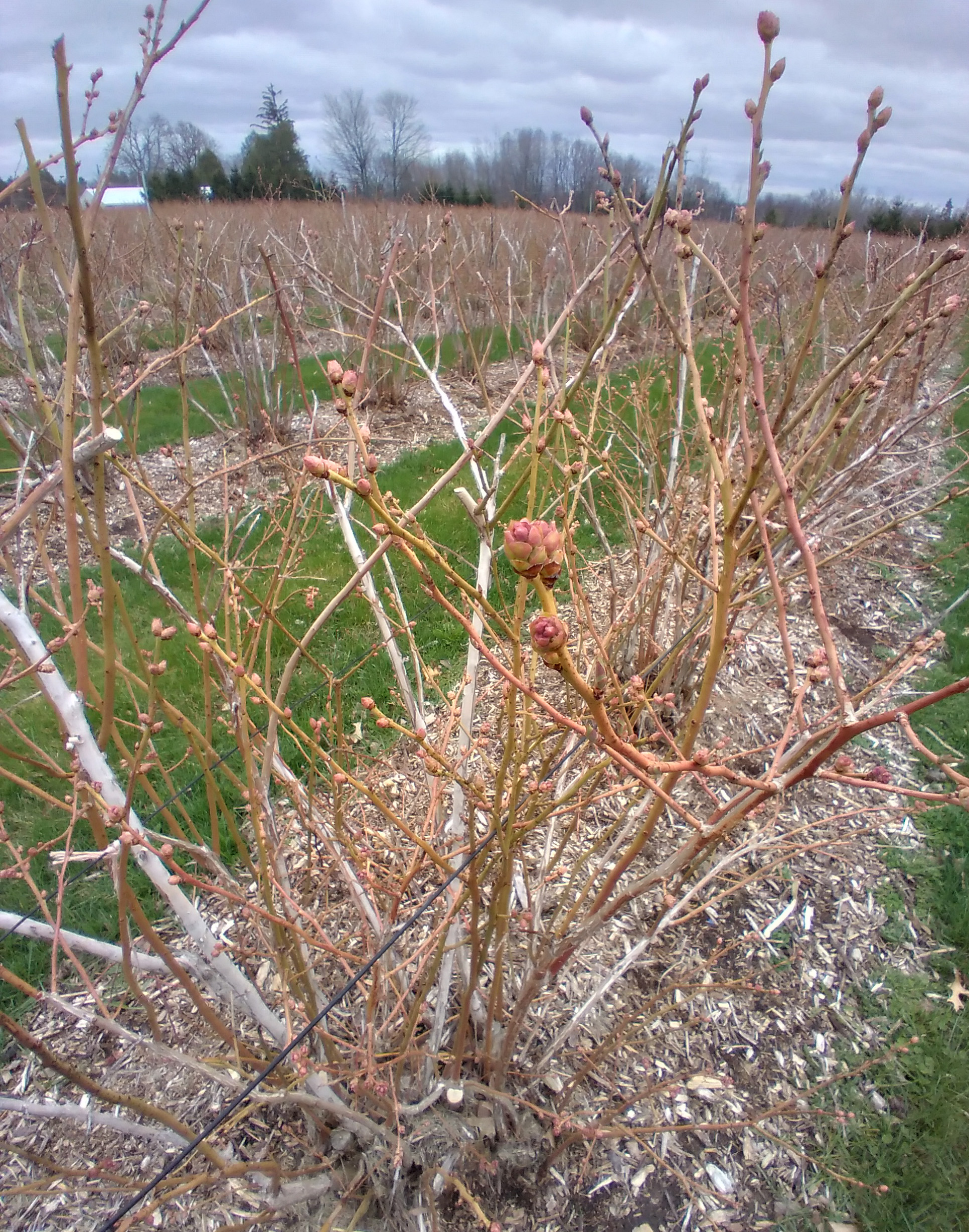West central Michigan small fruit update - May 3, 2022
West Michigan continues to have unseasonable weather conditions—cold and rainy—and blueberry growth and development advance very slow.

The west Michigan fruit growing region remains under cold and rainy conditions that allowed for a little change in plant growth and development. For the past seven days, the average daily minimum temperatures fluctuated between 40-42 degrees and the maximum fluctuated between 54-57 degrees Fahrenheit. Precipitation accumulation varied from 1.5 to 2.0 inches, depending on the location. So far, the growing degree day (GDD) accumulation since March 31 around Grand Junction, Michigan, is 148 degree days and 100 degrees (base 50 F) for the Grand Haven-Holland, Michigan, blueberry growing area. The highest degree day accumulation as well as the precipitation corresponded to the Grand Junction area.
Regarding plant growth and development, strawberries in west central Michigan are progressing very slow. The straw has been removed and at this time some early grow is emerging from the crown (Photo 1). However, prevailing weather conditions are slowing down their development.
Blueberries, on the other hand, are progressing through the early bloom stages. Varieties like Bluecrop and Duke are showing flower bud development mainly in the “tight cluster” stage (Photos 2 and 3). Elliott and other late season varieties still are in the bud break stage.


Current pest and disease problems in blueberries are not detected yet. However, there are already reports of the presence of mummy berry mushrooms in fields with a history of mummy berry infections at harvest time. Prevailing weather conditions are suitable for mummy berry infections. Therefore, growers should remain alert and conduct the appropriate fungicide applications to prevent shoot strikes and fruit infections. Recommended fungicides include Indar, Quilt, Tilt, among others. For fungicide doses and more fungicide recommendations, please consult the 2022 Michigan Fruit Management Guide (Extension Bulletin E-154).
In regards to insect pests, there are some reports of an early emergence of cherry and cranberry fruitworm overwintering moths around Fennville, Michigan. These fruitworm populations are what we call “suicidal” because there are not enough blueberry flowers or fruitlets where adults can oviposit and produce progeny. Therefore, growers need to be careful and look for advice from your local Michigan State University Extension educator to prevent spaying against these populations that will not be a problem for the crop.



 Print
Print Email
Email
